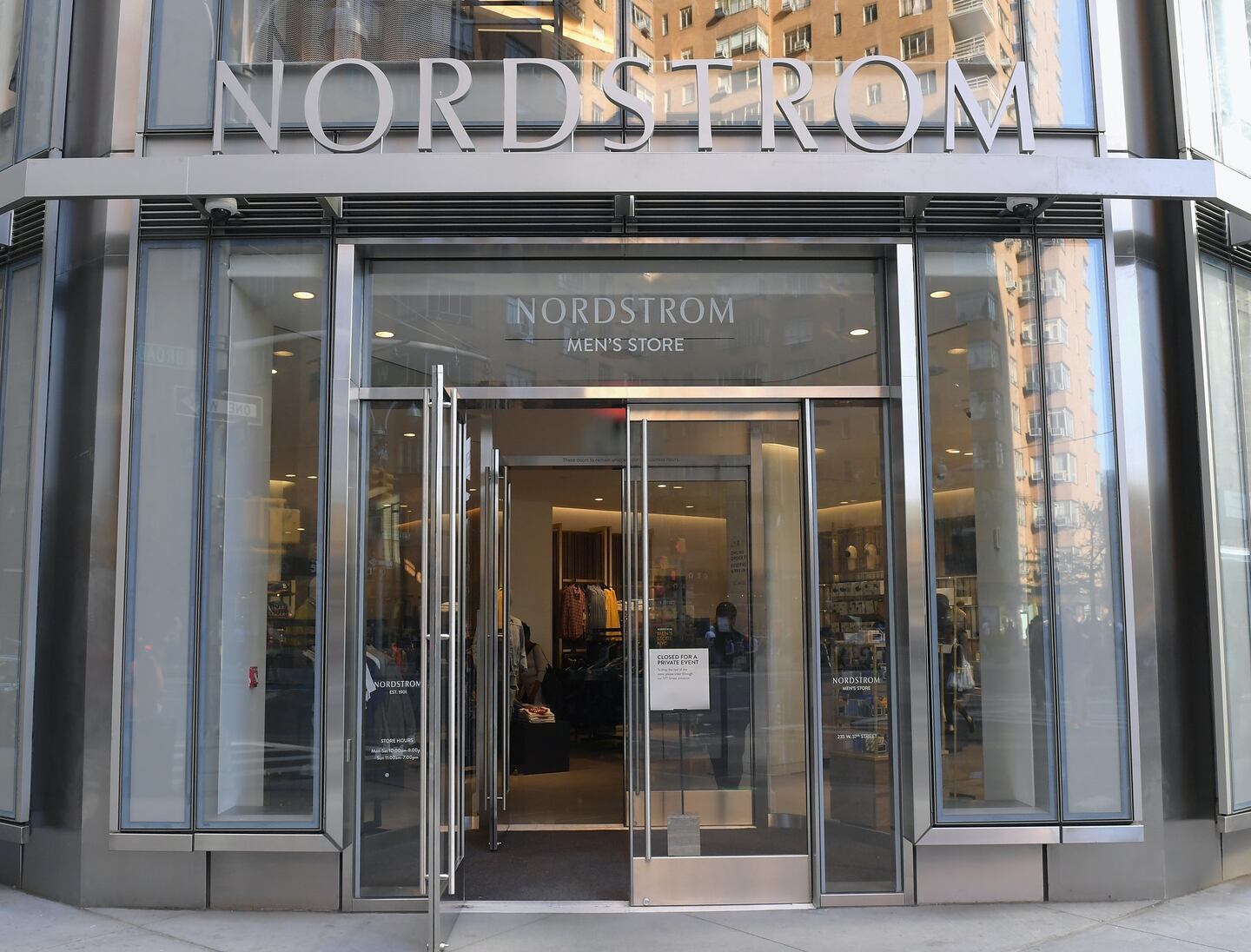
The Business of Fashion
Agenda-setting intelligence, analysis and advice for the global fashion community.

Agenda-setting intelligence, analysis and advice for the global fashion community.

NEW YORK, United States — Nordstrom Inc on Tuesday cut its forecast for full-year sales and profit after reporting weaker than expected first-quarter results that were hurt by the roll out of a new loyalty program and slow sales of full-priced women's clothing.
Shares of the department store operator tanked more than 9 percent in post-market trading.
The Seattle-based retailer, which sells everything from apparel and footwear to home decor, saw sales at its full-price and off-price businesses fall online and in its stores, hurt by an unsuccessful roll out of its "Nordy Club" loyalty program, reduced digital marketing and products that did not resonate as well with shoppers as the company had hoped.
Co-President Erik Nordstrom said on a post-earnings conference call the company stopped sending rewards "notes" to its loyalty customers by mail in an attempt to get the program online and reach customers faster. That shift caused a reduction in foot traffic at all of its stores, the executive said, as many customers rely on receiving these rewards by mail.
ADVERTISEMENT
"We're making the changes we believe are necessary to drive our top line as we continue our aggressive focus on expenses," Nordstrom said.
Even still, analysts remained concerned.
"While challenges to the full-line business are, at least in part, to be expected, the deterioration at the off-price division is more troubling," said Neil Saunders, managing director of GlobalData Retail.
The company also said trends from the fourth quarter continued into the first quarter and that it had to ramp up promotions in order to clear excess inventory from its winter collection.
The deterioration at the off-price division is troubling.
Nordstrom, like other brick-and-mortar retailers, has fought to react to consumers moving toward fast-fashion brands and online sites like Amazon Inc rather than visiting malls.
Nordstrom has invested heavily in its Nordstrom Rack stores that sell off-price merchandise in the United States and Canada. Its Nordstrom Local stores are also a point of pride, where shoppers can consult personal stylists for fashion, have their clothes altered and more.
The company, which said it was on track to open its first women's store in New York this October, now expects 2019 net sales between a 2 percent fall to flat, compared with its previous projection of a 1 percent to 2 percent rise.
The company expects 2019 profit between $3.25 per share and $3.65 per share, compared with its prior forecast of $3.65 per share to $3.90 per share.
ADVERTISEMENT
Total revenue for the first quarter, ended May 4, fell 3.3 percent to $3.44 billion, short of analysts' estimates of $3.58 billion, according to IBES Refinitiv data.
Nordstrom earned 23 cents per share in the quarter, short of analysts' estimates by 20 cents.
Earlier on Tuesday, retailer JC Penney Co Inc's same-store sales fell more than expected in the first quarter and its net loss nearly doubled after the retailer exited its appliance and in-store furniture businesses, sending shares down 10 percent.
Kohl's Corp on Tuesday slashed its full-year profit forecast after missing estimates for quarterly same-store sales and profit, sending shares down 11 percent.
Last week, rival Macy's Inc topped Wall Street estimates for quarterly same-store sales and profit benefiting from increased online sales and higher demand for items sold at its off-price stores.
By Nivedita Balu and Melissa Fares; editors: Shailesh Kuber and Chris Reese.
As the German sportswear giant taps surging demand for its Samba and Gazelle sneakers, it’s also taking steps to spread its bets ahead of peak interest.
A profitable, multi-trillion dollar fashion industry populated with brands that generate minimal economic and environmental waste is within our reach, argues Lawrence Lenihan.
RFID technology has made self-checkout far more efficient than traditional scanning kiosks at retailers like Zara and Uniqlo, but the industry at large hesitates to fully embrace the innovation over concerns of theft and customer engagement.
The company has continued to struggle with growing “at scale” and issued a warning in February that revenue may not start increasing again until the fourth quarter.